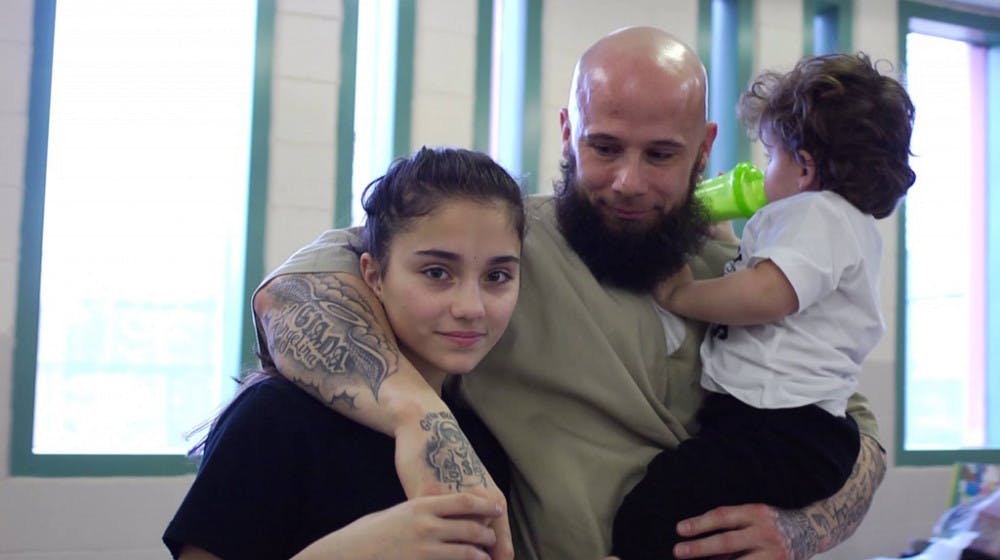Tuesday afternoon, the John Nicholas Brown Center for Public Humanities and Cultural Heritage screened Denali Tiller’s film, “Sons and Daughters of the Incarcerated,” the most recent of the University’s strides in prison reform education.
The Rhode Island School of Design graduate’s 22-minute documentary poignantly depicts an overlooked aspect of mass incarceration — namely, the lives of some of the approximately five million children whose parents have been incarcerated.
The film explores the effects of the United States’s criminal justice system on children by peering into the lives of three children with incarcerated fathers.
Tiller was quick to dismiss the societal lens that reduces the documentary’s subjects to “risks, statistics and hardships.” Tiller instead aimed to emphasize the children’s “tremendous potential, love and resilience.”
“The cultural, societal and economic implications of mass incarceration are important,” Tiller said. “But what I really wanted to examine was the voice of these kids” by underscoring both the personal nature of the film and its commitment to humanizing its subjects’ trauma.
Marisa Brown, assistant director of programs at the John Nicholas Brown Center, said that the film was screened because of the exceptionality of its portrayal of Rhode Island’s children and parents affected by incarceration. “The entire film was made at an adult correctional institute at Cranston,” Brown said. “It’s really difficult to find work that portrays incarceration in such a small state.”
Brown went on to assert the work’s role in the University’s broader series of recent programs related to criminal justice reform.
One such exhibit co-curated by the University, entitled “States of Incarceration,” was on display in the University of Rhode Island Gallery from Aug. 29 to Sept. 24 and examined 17 different states’ unique histories of mass incarceration.
A more concrete dialogue on prison reform — specifically on the University’s commitment to generating a prison education program — developed with a conference called “Prison Education Movement: Does Brown Have a Role?” that took place on Sept. 16.
The conference convened both local and national figures for the sake of prompting initiatives towards a prison education movement at Brown. A program in cooperation with the Community College of Rhode Island was suggested, which would echo an existing Cornell program that aids formerly incarcerated Ithaca students in attaining bachelor’s degrees.
From November to February, public humanities master’s students plan on partnering with LGBT prison reform group “Black + Pink” to construct a mock-up of a solitary confinement cell, a move that could warrant some interest by politicians.
“Rep. Aaron Regunberg (’12, D-Providence,) would love to see legislation meant to limit solitary confinement in Rhode Island,” Brown said. “The mock-up could be an educational tool for lawmakers, … so they can actually get a firsthand look at solitary confinement cells.”
But for now, “Sons and Daughters of the Incarcerated” stands as one of the few heart-rending reminders of the countless lives affected by mass incarceration within Rhode Island.





